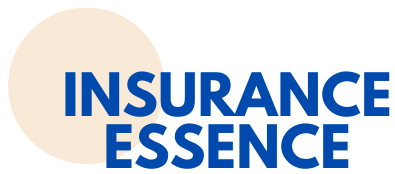As a single parent, your family’s health is your main concern. Finding affordable health insurance is key to meeting your children’s healthcare needs. The Affordable Care Act (ACA) has made it easier to find health coverage. It offers many options, helping single mothers get the care they need.
Key Takeaways
- The Affordable Care Act (ACA) has expanded health insurance options for single parents, including employer-sponsored plans, individual and family plans, Medicaid, and the Children’s Health Insurance Program (CHIP).
- Eligibility for government-assisted programs like Medicaid and CHIP is based on factors such as income, household size, and age, with varying income thresholds across states.
- Short-term health insurance plans offer less comprehensive coverage than individual or employer-sponsored plans, but may be a temporary solution for some single mothers.
- Understanding the available options, their benefits, and cost-saving strategies can help single mothers secure the necessary healthcare coverage for their families.
- Seeking community resources and support can also aid single mothers in navigating the health insurance landscape and accessing affordable care.
Introduction to Health Insurance for Single Mothers
As a single mom, getting good health insurance is key for your family’s health. It gives you access to medical care and helps keep your finances stable. But, finding affordable health insurance can be tough for single parents.
Why Health Insurance is Crucial for Single Mothers
Health insurance is very important for single moms. It helps you and your kids stay healthy by covering doctor visits and treatments. Without it, medical bills can be too much to handle, threatening your family’s money situation. Health insurance gives you the safety and peace of mind you need.
Challenges Single Mothers Face in Obtaining Health Coverage
- Limited income: Single moms often have to deal with tight budgets, making it hard to get good health insurance.
- Lack of employer-sponsored plans: Many single moms work jobs that don’t offer health insurance, making it hard to get group coverage.
- Navigating the healthcare system: The healthcare system can be very confusing, making it hard for single moms to find the right insurance.
Knowing how important health insurance is and the challenges single moms face is the first step. It helps you find affordable and good coverage for your family.

“As a single mother, finding the right health insurance plan is not only crucial for my family’s well-being but also for our financial stability. It’s a constant challenge, but I’m determined to ensure my children have access to the care they need.”
Employer-Sponsored Health Insurance Options
If your employer offers health insurance, it’s a good choice for single mothers. Employer-based health insurance is often cheaper than individual plans. This is because employers help pay for the premiums. These group health plans usually cover a lot and let you see a network of providers.
But, you should check the plan’s benefits, costs, and providers. Make sure it fits your family’s needs.
In 2022, about 58.3 million women ages 19-64 (60%) got health coverage from their jobs. The average yearly cost for individual coverage was $7,911. For families, it was $22,463, up 43% in ten years.
Employer insurance can save money, but think about the affordability. In 2023, workers paid 17% for single coverage and 29% for family. The average yearly contribution was $1,401 for single and $6,575 for family.
- Check if the plan covers dependents. The Affordable Care Act lets plans cover kids up to age 26, no matter if they’re married.
- Look at the network of providers. Make sure they offer the healthcare your family needs.
- Know the deductibles and out-of-pocket maximums. This helps you guess your healthcare costs.
Employer insurance is a good choice for single mothers. But, it’s key to think about the affordability, coverage for dependents, and network of providers. This ensures it meets your family’s health needs.

Individual and Family Health Insurance Plans
If you don’t get health insurance from your job, you can look into individual and family plans. You can find these through the Affordable Care Act (ACA) marketplace or private companies. The marketplace lets you see different plans, check if you qualify for ACA subsidies, and pick the best plan for your family.
Navigating the Health Insurance Marketplace
The Health Insurance Marketplace is an online place to find and sign up for individual and family health plans. When you go there, you can:
- Look at different health insurance plans and see their premiums, deductibles, and out-of-pocket costs.
- Find out if you qualify for ACA subsidies, which can lower your health insurance premiums.
- Choose the plan that fits your family’s needs and budget.
Eligibility Requirements for Individual and Family Plans
To get an individual or family health plan through the ACA marketplace, you need to meet some eligibility criteria. You must be a U.S. citizen or national, live in the United States, and not be in jail. Also, your household income must be within a certain range to get subsidies or cost-sharing reductions.
| Household Size | Annual Income Range (2023) |
|---|---|
| 1 | $13,590 – $54,360 |
| 2 | $18,310 – $73,240 |
| 3 | $23,030 – $92,120 |
| 4 | $27,750 – $110,000 |
Keep in mind, the eligibility requirements and subsidies can change based on where you live and your personal situation.

Government-Assisted Health Insurance Programs
Medicaid is a key program for single mothers looking for affordable health insurance. It offers free or low-cost coverage to those who qualify. This includes single mothers and their kids. Medicaid covers important health services like doctor visits, hospital stays, and medicine.
Medicaid for Single Mothers and Children
Each state has its own rules for Medicaid, so single mothers need to check their local requirements. They can apply through their state’s Medicaid office or the health insurance marketplace. Things like family size, income, and pregnancy status can affect if you qualify.
Understanding how to apply and what services are covered is crucial. This way, single mothers can get the healthcare their families need.
| Key Medicaid Statistics | Value |
|---|---|
| SHIP grantees nationwide | 54, covering all 50 states, Puerto Rico, Guam, District of Columbia, and U.S. Virgin Islands |
| Local SHIP sites and team members | Over 2,200 local sites and more than 12,500 team members |
| Individuals assisted by SHIPs in 2020 | 1.8 million Medicare beneficiaries and 209,859 adults under 65 with disabilities |
| SHIP outreach events in 2020 | 18,800 |
Medicaid helps single mothers get the healthcare their families need. It’s a vital resource for them to thrive.
Children’s Health Insurance Program (CHIP)
The Children’s Health Insurance Program (CHIP) helps families who can’t get Medicaid but need health coverage for their kids. It offers many healthcare benefits like check-ups, shots, and emergency care. These services are often free or very cheap for families.
CHIP Eligibility and Benefits
To get CHIP, families look at income, family size, and the child’s age and immigration status. CHIP is for kids in families that make too much for Medicaid but can’t afford private insurance.
CHIP covers important healthcare services for kids, including:
- Routine doctor visits and check-ups
- Immunizations
- Emergency care
- Prescription drugs
- Dental and vision care
- Inpatient and outpatient hospital services
- Laboratory and x-ray services
CHIP is cheaper than private insurance, which is great for single moms and their kids.
“CHIP is a lifeline for many families who need affordable, comprehensive healthcare for their children. It provides peace of mind and ensures that kids get the care they need, no matter their family’s financial situation.”
| CHIP Eligibility Criteria | CHIP Benefits | Cost of CHIP Coverage |
|---|---|---|
| – Household income too high for Medicaid, but too low to afford private insurance – Child must be under 19 years old – Certain immigration status requirements may apply |
– Routine check-ups and vaccinations – Emergency care – Prescription drugs – Dental and vision care – Inpatient and outpatient hospital services – Laboratory and x-ray services |
– Often little to no cost for families – Premiums and copays typically much lower than private insurance |
Short-Term Health Insurance Solutions
Single mothers with gaps in health coverage might find short-term health insurance helpful. These plans are cheaper than full coverage but have big limits and exclusions.
Short-term health insurance lasts up to 3 months, sometimes 4 months in some states. But, the federal government has cut the max coverage to 12 months, down from 1 year with a 3-year extension.
The cost for short-term health insurance is about $171 a month. It can cost between $100 and over $200. It’s important to look closely at what the plan offers.
| Pros of Short-Term Health Insurance | Cons of Short-Term Health Insurance |
|---|---|
|
|
Short-term health insurance plans aren’t covered by the Affordable Care Act. They can refuse coverage for pre-existing conditions. They also might not cover essential health benefits like maternity care or mental health services.
When looking at short-term health insurance, compare things like doctor coverage and deductibles. Make sure the plan fits your needs and budget. While it can be a temporary solution, know its limits and exclusions first.
Health Insurance for Single Mothers Through Parents’ Plan
Many single mothers find staying on their parents’ health insurance plan a good option. In some states, they can stay covered until they’re 26. This can be cheaper than buying their own insurance.
But, this coverage only goes to the single mother, not her kids. If she has children, they need their own plan. This can make things more expensive and complicated.
Eligibility and Limitations
To qualify as a dependent, single mothers must meet certain rules. These include:
- Being under 26
- Having a qualifying relationship with the policyholder
- Living with the policyholder for at least six months
- Not earning more than half their own income
It’s key to know the limits and costs of being a dependent. Some plans might not cover everything or have limited doctors.
| Dependent Coverage Considerations | Costs | Limitations |
|---|---|---|
| Age limit for dependents | Typically lower premiums compared to individual plans | Coverage may not extend to dependent children |
| Qualifying relationship requirements | Potential tax benefits for the policyholder | Restricted network of healthcare providers |
| Residency and financial dependence criteria | Dependent children may be covered under CHIP or Medicaid | Potential gaps in coverage for specific health needs |
Understanding the pros and cons of staying on a parent’s plan helps single mothers. They can choose what’s best for their family’s health and budget.
Affordable Care Act (ACA) and Subsidies
The Affordable Care Act (ACA) has changed the game for single mothers looking for affordable health insurance. It offers premium tax credits and cost-sharing reductions. These help lower the monthly cost of health coverage and out-of-pocket expenses.
Premium Tax Credits and Cost-Sharing Reductions
Premium tax credits are based on income. They range from 0% for those at or below 150% of the Federal Poverty Level (FPL) to 8.5% for those above 400% FPL. This makes health insurance more affordable for single mothers with limited income.
Cost-sharing reductions also help. They are for those with incomes between 100-250% FPL. These reductions are only for silver-level Marketplace plans. They offer higher actuarial values and lower deductibles, copays, and maximum out-of-pocket limits.
| Income Level | Premium Tax Credit Contribution | Cost-Sharing Reduction Plan |
|---|---|---|
| Up to 150% FPL | 0% of household income | 94% actuarial value |
| 150-200% FPL | 2-6.3% of household income | 87% actuarial value |
| 200-250% FPL | 6.3-8.5% of household income | 73% actuarial value |
| Above 400% FPL | 8.5% of household income | No cost-sharing reductions |
Single mothers should check if they qualify for these subsidies through the ACA Marketplace. These subsidies can make health insurance more affordable and accessible.
Comparing Health Insurance Plans for Single Mothers
Choosing the right health insurance plan is crucial for single mothers. They must think about their family’s health needs, budget, and what they prefer. It’s important to look at the plan’s coverage for things like pediatric care, mental health, and prescription drugs. Also, check if the plan has a good network of healthcare providers.
Don’t just look at the monthly premiums. Compare deductibles and out-of-pocket costs too. Some plans might have lower premiums but higher deductibles. Others might offer more coverage for a higher monthly fee. Benefits like wellness programs or telehealth services can also be great for single-parent families.
Factors to Consider When Choosing a Plan
- Coverage Needs: Check if the plan covers services your family needs, like care for kids, mental health, and prescription drugs.
- Network of Providers: Make sure the plan’s network includes your preferred healthcare providers.
- Premiums, Deductibles, and Out-of-Pocket Costs: Look at the monthly costs, deductibles, and maximum out-of-pocket expenses to find a plan that fits your budget.
- Additional Benefits: Consider extra features like telehealth services, wellness programs, or advocacy services that can add value to the plan.
By carefully considering these factors, single mothers can find a health insurance plan that meets their family’s needs and budget.
“An average of 54% reduction in member out-of-pocket costs with UnitedHealthcare’s Surest® plan, helping to avoid billing surprises.”
Health Savings Accounts (HSAs)
As a single mom, handling healthcare costs can be tough. Health Savings Accounts (HSAs) offer a way to save for medical expenses. You can put money aside before taxes to cover things like doctor visits and prescriptions.
HSAs are great because they’re flexible. They often go with high-deductible plans, which cost less each month but ask you to pay more upfront. By saving in an HSA, you can plan for these higher costs and keep your family healthy.
To use an HSA in 2023, you need a high-deductible plan and meet IRS rules. You can use the money for many medical costs. Plus, any money left over can roll over to the next year, helping you save more.
HSAs are also safe, insured by the FDIC up to $250,000. But, some might charge fees. So, it’s smart to shop around and find the best deal for you.
Using an HSA is a smart move for single moms to handle healthcare costs. With their tax benefits and flexibility, you can prepare for medical bills and keep your family healthy.
| Key HSA Facts | Details |
|---|---|
| FDIC Coverage | Up to $250,000 in coverage if the financial institution fails |
| Qualified Expenses | Deductibles, copayments, coinsurance, vision, and dental care |
| Potential Fees | Monthly maintenance, paper statement, outbound transfer, and account closure fees |
| Non-Deposit Investments | Not FDIC-insured, such as mutual funds within the HSA |
| Ineligible Expenses | Subject to taxation and tax penalties |
To keep your HSA safe, make sure it’s at an FDIC-insured bank. Also, keep your HSA debit card separate to avoid buying things you shouldn’t and facing penalties.
“Utilizing an HSA can be an effective strategy for single mothers to budget for healthcare costs and ensure their family’s well-being.”
Community Resources and Support
Being a single mom, dealing with healthcare and finding affordable plans can feel overwhelming. But, you’re not alone. Many community resources and support groups are here to help. They include local nonprofits and government agencies, ready to guide you through the healthcare system.
Nonprofit groups in your area focus on helping single moms. They offer services like counseling, job training, and help finding healthcare providers. These organizations can provide the support you need to find the best health insurance for your family.
Government agencies at the state and local levels also offer crucial support. Programs like Medicaid, CHIP, and TANF provide affordable healthcare and financial aid. While these resources can be complex, community groups and case managers are there to help you navigate them.
Remember, you’re not alone in this journey. By using the community resources and support available, you can find healthcare coverage more easily. This way, you can make choices that keep your family healthy and happy.
“The greatest weapon against stress is our ability to choose one thought over another.” – William James
Health Insurance for Single Mothers
Getting health insurance is crucial for single mothers. It offers financial security, quality healthcare, and peace of mind. There are many options, like employer plans and government programs, to fit each family’s needs.
Medicaid is a great choice for single mothers. It provides low or no-cost coverage for important services, like prenatal and maternity care. The Illinois Medicaid Program offers great benefits with little cost to the family.
The Affordable Care Act (ACA) Marketplace also helps. It lets single mothers get affordable health insurance plans. These plans offer discounts based on income, making healthcare more affordable.
For quick coverage, short-term health insurance plans are an option. They start coverage fast for those in transition. Catastrophic health insurance plans are also low-cost. They’re good for single mothers under 30 or those with certain exemptions.
Choosing health insurance is key for single mothers. It ensures they can care for their family’s health without financial worry. By looking into different options, single mothers can find the best coverage for their family’s health and peace of mind.
“Having health insurance gives me the confidence to prioritize my family’s health, without worrying about the financial burden of unexpected medical expenses.”
Making Healthcare Affordable for Single Parents
As a single parent, finding affordable healthcare can be tough. But, with smart strategies and resources, you can manage costs well. Look into high-deductible plans with Health Savings Accounts (HSAs), use Affordable Care Act (ACA) subsidies, and find cost-saving tools to help with budgeting.
Budgeting Tips and Cost-Saving Strategies
Creating a detailed financial plan is crucial for affordable healthcare. First, assess your healthcare needs and compare insurance plans. High-deductible plans with lower premiums are a good option. Pair them with an HSA to save for medical costs later.
- Explore ACA subsidies and tax credits to lower your health insurance premiums.
- Utilize community resources and support programs that offer affordable or free healthcare services.
- Prioritize preventive care to catch any health issues early and avoid costly treatments later on.
- Negotiate with healthcare providers for discounts on out-of-pocket expenses.
- Review your coverage regularly and make adjustments to ensure you’re getting the best value.
| Coverage | Cost | Savings |
|---|---|---|
| ACKO Health Insurance – Rs. 10 Lakh Policy | Rs. 987 per month | Zero waiting period, 100% bill coverage, 14,300+ cashless hospitals |
| Family Floater Plan – Rs. 10 Lakh Policy | Rs. 987 per month | Instant coverage for existing illnesses, no waiting periods |
By being proactive and strategic with your healthcare planning, you can protect your family’s health and keep your finances stable. Understanding your options and finding ways to save can greatly improve your healthcare affordability.
Preventive Care and Wellness for Single Mothers
As a single mom, taking care of your health is key for your family’s well-being. Regular check-ups, screenings, and shots can catch problems early. This helps you stay healthy and full of energy to care for your kids.
The Affordable Care Act (ACA) makes sure health plans cover many preventive services for women without extra costs. This includes mammograms, cervical cancer tests, and prenatal care. The Women’s Preventive Services Guidelines also update often. They suggest a wide range of services to keep women healthy, from diabetes screenings to advice on STIs.
- Routine check-ups and screenings can find health problems early. This means you can get treatment quickly and have better health in the long run.
- Shots like the flu vaccine and HPV protect you and your family from getting sick.
- Staying active, eating well, and managing stress help keep you healthy and strong.
By focusing on your health, you can give your kids the best care. This creates a healthier future for your family. Remember, your health is crucial for your family’s happiness.
“The greatest gift you can give your children is a healthy, happy, and whole parent.”
Navigating the Health Insurance Enrollment Process
Getting health insurance can seem hard, but there’s help for single moms. Knowing when to enroll, like during the open enrollment period or special enrollment periods, is key.
Single parents can get help from health insurance marketplaces, government agencies, or local nonprofits. They can guide you through the application process. This ensures you get the right coverage for your family.
Deadlines and Enrollment Periods
The open enrollment period for health plans bought through the ACA Marketplace is from November 1st to January 15th. But, some states like California, Massachusetts, and Washington D.C. have different times.
People with Medicaid eligibility can sign up anytime, not just during open enrollment. The special enrollment period lets you change plans after big life events. You have 60 days to do so.
Factors to Consider
When picking a plan during open enrollment, think about your health needs. Consider chronic conditions, prescription drugs, and if you want to see doctors outside your network. Also, think about cost, changes in your household, and if you want telemedicine options.
| Factor | Consideration |
|---|---|
| Chronic Health Conditions | Evaluate coverage for treatment and management of ongoing health issues like ADHD or asthma. |
| Prescription Drug Needs | Ensure the plan provides adequate coverage for necessary medications. |
| Out-of-Network Care | Understand the plan’s restrictions on out-of-network coverage to avoid unexpected expenses. |
| Household Changes | Consider how any changes in family size or employment status may impact health insurance needs. |
| Cost Preferences | Balance premiums, deductibles, and out-of-pocket maximums to find the right balance of coverage and affordability. |
| Telemedicine Options | Explore plans that offer convenient virtual care options for non-emergency medical needs. |
By understanding the health insurance enrollment process and considering these key factors, single mothers can make informed decisions. This way, they can secure the coverage that best meets their family’s healthcare needs.
Conclusion
Getting affordable health insurance is crucial for single mothers. It keeps both the parent and their kids healthy. By looking into different options, single parents can find the right plan for their needs and budget.
They can use employer plans, individual policies, government help, and community resources. With careful planning and budgeting, single mothers can make sure their families get the medical care they need. This includes preventive services and support to help them thrive.
Health insurance is key for single mothers. It protects their finances, gives them access to vital medical services, and helps their family’s health and success. By using the tips and resources in this article, single parents can handle the healthcare system. This sets the stage for a brighter future for their families.
You’re not alone in this journey. Many community groups, government programs, and support networks can help single mothers find the right insurance. Take time to explore these resources and ask for help when needed. With a good plan, you can give your family the care, stability, and opportunities they deserve.
FAQ
What are the health insurance options available for single mothers?
How can single mothers find affordable health insurance coverage?
What factors should single mothers consider when choosing a health insurance plan?
How can single mothers navigate the health insurance enrollment process?
What community resources are available to help single mothers find affordable health insurance?
How can single mothers utilize Health Savings Accounts (HSAs) to manage healthcare expenses?
What are the key challenges single mothers face in obtaining health coverage?
Why is health insurance crucial for the well-being of single-parent families?
Source Links
- How to Find Health Insurance as a Single Parent | eHealth – https://www.ehealthinsurance.com/resources/individual-and-family/how-to-find-health-insurance-as-a-single-parent
- Can’t afford health insurance? 5 health insurance options for single moms – https://www.wealthysinglemommy.com/health-insurance-single-moms/
- How to apply for Medicaid and CHIP | USAGov – https://www.usa.gov/medicaid-chip-insurance
- NWLC Resources on Poverty, Income, and Health Insurance in 2023 – National Women’s Law Center – https://nwlc.org/resource/nwlc-resources-on-poverty-income-and-health-insurance/
- Single Parent Health Insurance UK – myTribe – https://www.mytribeinsurance.co.uk/knowledge/single-parent-health-insurance
- Your Rights in California: Guide for Working Single Parents – https://leclerclaw.com/blog/2024/04/your-rights-california-guide-working-single-parents/
- Women’s Health Insurance Coverage | KFF – https://www.kff.org/womens-health-policy/fact-sheet/womens-health-insurance-coverage/
- Employer-Sponsored Health Insurance 101 | KFF – https://www.kff.org/health-policy-101-employer-sponsored-health-insurance/
- What’s the Best Health Insurance Option for Young Adults? Parent’s Policy vs. Employer Plan – https://www.mycalchoice.com/health-insurance-plan-young-adults/
- Individual and Family Plan Benefits – https://www.cigna.com/individuals-families/shop-plans/health-insurance-plans/plan-benefits/
- Health Plan Research Information – https://www.healthcare.gov/health-plan-information
- State Health Insurance Assistance Program (SHIP) – http://acl.gov/programs/connecting-people-services/state-health-insurance-assistance-program-ship
- Health Coverage Options for the Uninsured Job Aid – https://www.cms.gov/marketplace/technical-assistance-resources/health-coverage-options-for-uninsured.pdf
- New Rules Will Help Adults and Children Enroll — and Stay Enrolled in — Medicaid and CHIP – https://www.commonwealthfund.org/blog/2024/new-rules-will-help-adults-and-children-enroll-and-stay-enrolled-medicaid-and-chip
- Understanding Children’s Health Insurance Plans – https://www.cigna.com/knowledge-center/health-insurance-for-children
- Best Short-Term Health Insurance Companies Of 2024 – https://www.forbes.com/advisor/health-insurance/best-short-term-health-insurance/
- What is Short Term Health Insurance? – https://www.cigna.com/knowledge-center/what-is-short-term-health-insurance
- Who Can I Add to my Health Insurance Plan as a Dependent? | eHealth – https://www.ehealthinsurance.com/resources/individual-and-family/can-added-dependent-health-insurance-plan
- Life Insurance for Single Parents | Bankrate – https://www.bankrate.com/insurance/life-insurance/life-insurance-for-single-parents/
- Can you put non-family members on your health insurance? – https://www.peoplekeep.com/blog/can-you-put-non-family-members-on-your-health-insurance
- Explaining Health Care Reform: Questions About Health Insurance Subsidies | KFF – https://www.kff.org/affordable-care-act/issue-brief/explaining-health-care-reform-questions-about-health-insurance-subsidies/
- The Affordable Care Act 101 | KFF – https://www.kff.org/health-policy-101-the-affordable-care-act/
- Which health plan is right for you? – https://www.uhc.com/news-articles/benefits-and-coverage/new-to-insurance
- Types of Health Plans: How They Compare – https://www.webmd.com/health-insurance/types-of-health-insurance-plans
- Health Savings Accounts | FDIC – https://www.fdic.gov/consumer-resource-center/2024-09/health-savings-accounts
- Publication 969 (2023), Health Savings Accounts and Other Tax-Favored Health Plans – https://www.irs.gov/publications/p969
- Single Mom Assistance in California – https://www.linkedin.com/pulse/single-mom-assistance-california-single-mother-grants-88pae
- Immediate Assistance For Single Mothers | E.S.T.H.E.R – https://esthersmo.com/2024/10/24/what-programs-give-immediate-assistance-for-single-mothers/
- Resources and Grants Providing Financial Help for Single Parents – https://www.gofundme.com/c/blog/financial-help-single-parents
- Health Insurance For Single Moms In Illinois – https://medium.com/@jackwillee34/health-insurance-for-single-moms-in-illinois-d7929aa361f5
- Check Health Insurance Policy For Single Parent – https://www.insurancedekho.com/health-insurance/news/health-insurance-policy-for-single-parent-5524
- Health Insurance Options for Single Moms in Florida | Covering Central Florida – https://www.coveringcfl.net/health-insurance-options-for-single-moms-in-florida/
- Buy Health Insurance for a Single Parent Starting @₹20/day – https://www.acko.com/health-insurance/health-insurance-for-single-parent/
- Best Health Insurance Plans for Single Moms: Affordable Coverage & Comprehensive Care – https://medium.com/@helpsingalmother/best-health-insurance-plans-for-single-moms-affordable-coverage-comprehensive-care-c6d5f1e25458
- Women’s Preventive Services Guidelines | HRSA – https://www.hrsa.gov/womens-guidelines
- New Data: Moms Prioritize Household Healthcare Over Their Own – https://www.pymnts.com/study_posts/new-data-moms-prioritize-household-healthcare-over-their-own/
- Making Sense of Health Insurance: Essential Tips for Arizona Parents – Raising Arizona Kids Magazine – https://www.raisingarizonakids.com/2024/10/making-sense-of-health-insurance-essential-tips-for-arizona-parents/
- Your Guide to Open Enrollment and Health Insurance for 2025 – https://www.kiplinger.com/personal-finance/your-guide-to-open-enrollment-and-health-insurance
- Navigate Open Enrollment 2024: Tips for Choosing the Best Plans – https://www.buzzrx.com/blog/open-enrollment
- 5 things single parents should consider about life insurance – https://www.midlandnational.com/learn-and-plan/5-things-single-parents-should-consider-about-life-insurance
- The impact of health insurance on maternal and reproductive health service utilization and financial protection in low- and lower middle-income countries: a systematic review of the evidence – https://www.ncbi.nlm.nih.gov/pmc/articles/PMC10996233/
- FACT SHEET: Medicaid Works For Women & Children — Protect Our Care – https://www.protectourcare.org/fact-sheet-medicaid-works-for-women-children-2/

